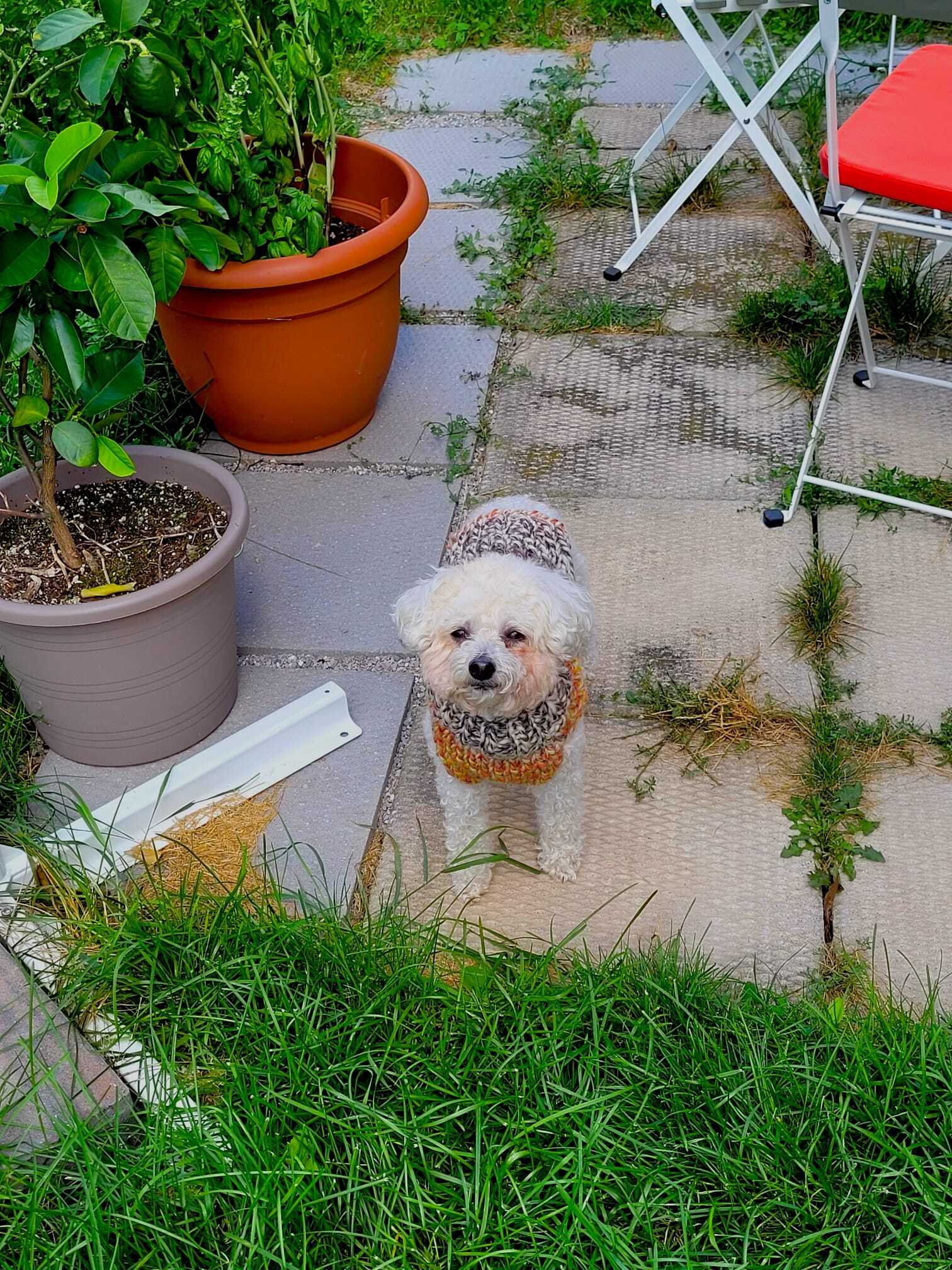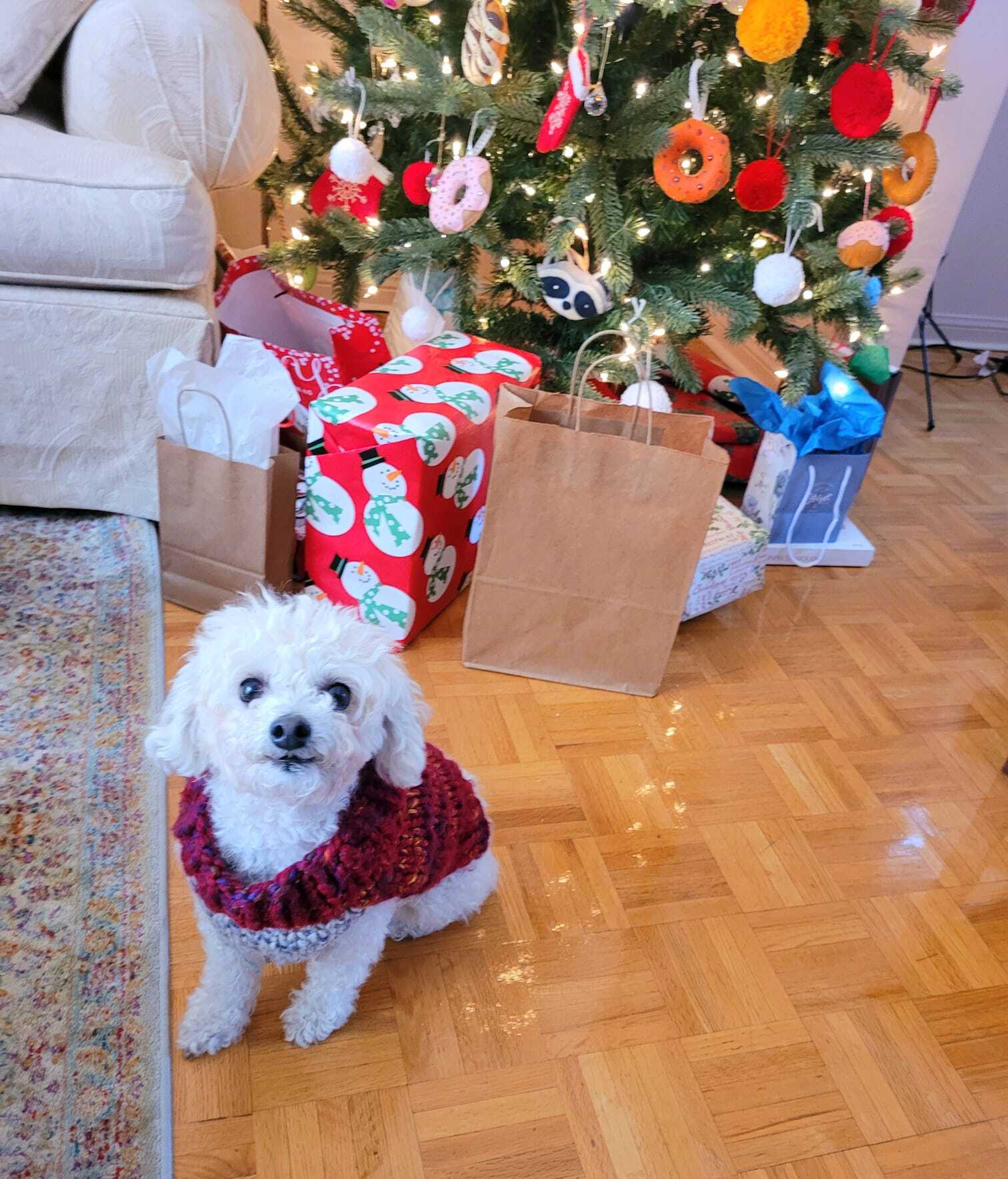‘Meet the preLighters’: a virtual chat with Jade Chan
21 September 2023
Jade Chan is a graduate student in the labs of Dr. Xi Huang and Dr. C.C. Hui at SickKids Research Institute in Toronto, Canada. Her research interests cover the fields of mechanobiology and cancer neuroscience, among others, and she currently studies the function of a specific potassium channel protein. Here, Jade tells us how she first discovered that the channel she is examining is in fact a nuclear channel. We also discuss her PhD experience, the impact of COVID, and her plans for the future (partly inspired by preLights). Do make sure to read until the end as the images of her dog Pip in a self-knitted sweater are not to be missed!
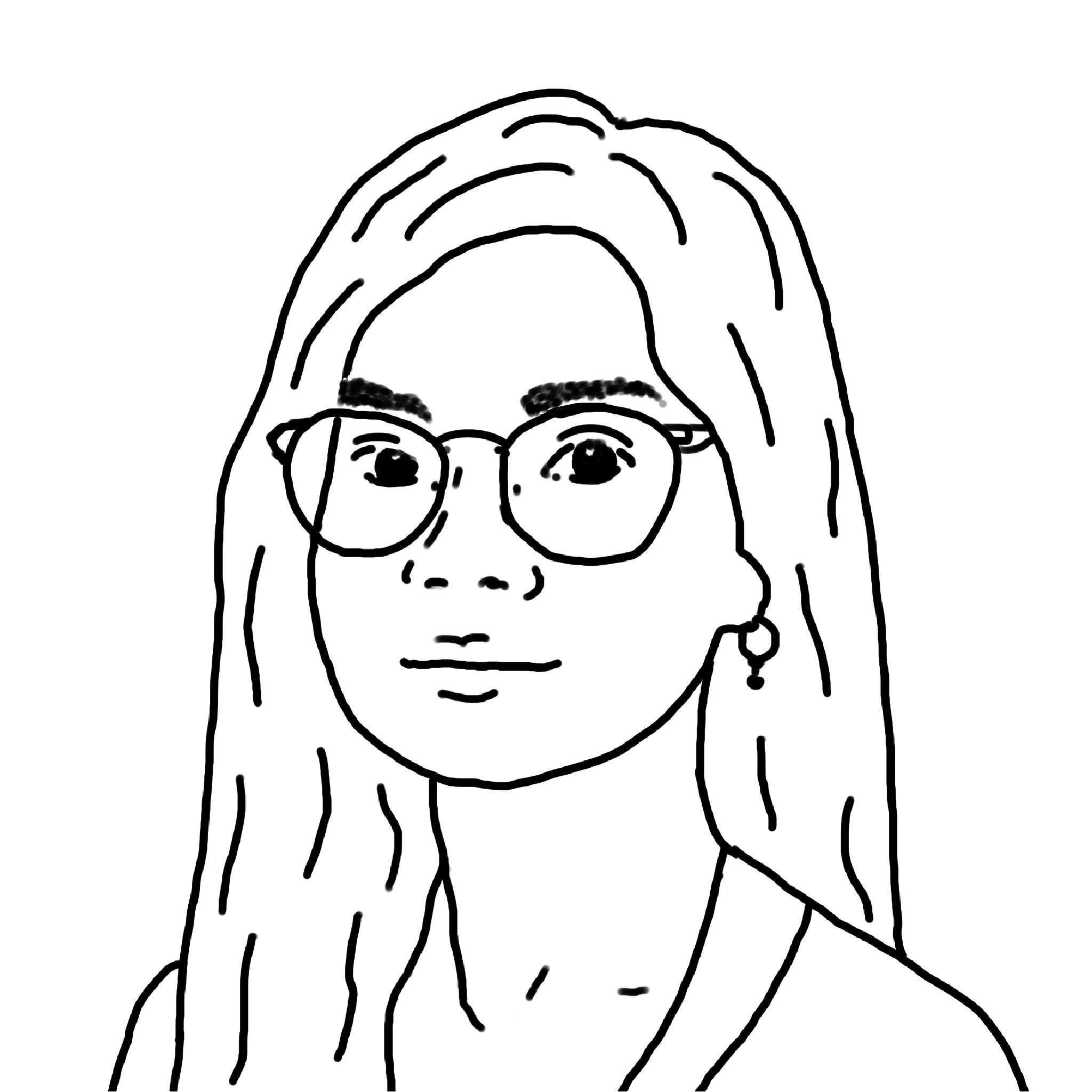
What sparked your initial interest in science?
Watching ‘The March of the Penguins’ documentary for the first time. I saw that documentary and was inspired by the scientists and the way they interacted with the animals. I love animals and plants – my house is full of them (plants mostly) – and so my main initial interest was zoology.
Nevertheless, I chose to pursue a psychology undergraduate degree at the University of Waterloo, Canada. This was a co-op programme which meant that as part of my studies I could gain practical work experience. I applied to several jobs and not all were related to psychology – some were in the life sciences. As such, I happened to get an interview for a job in a diabetes (wet) lab where I would be working with mice and cell cultures. It was my first introduction to molecular biology and I was hooked.
“I love animals and plants – my house is full of them (plants mostly) – and so my main initial [scientific] interest was zoology.”
What drew you into the world of molecular biology?
Just seeing the process – the way in which things are done. You start from the question and then design the research project in a way that allows you to address each aspect of it in a rock-solid way. It’s something that is alluded to in biology lectures but, when you see it in action, it’s really something else.
It’s the experience in the lab – I actually worked in two labs as part of my undergraduate – that made me decide to continue into research and become a PhD student.
“the [experimental] process . … is something that is alluded to in biology lectures but, when you see it in action, it’s really something else.”
What are you studying as part of your PhD? Have there been any ‘eureka’ moments?
I decided to join the labs of Xi Huang and C.C. Hui which are both based at SickKids Research Institute in Toronto, Canada. The main interest of the lab is to understand the roles of ion channels and tissue mechanics in the development of adult and pediatric brain tumours. My PhD project focuses on the function of a specific potassium channel protein in medulloblastoma, one of the most common malignant brain cancers in children.
So in the initial stages of my project, we used FRET-based intracellular potassium sensors to detect potassium in different compartments of the cell. We expressed this sensor in our cancer cells of interest and knocked down the potassium channel protein I’m studying. We noticed that in the knockdown, potassium levels were specifically affected in the nucleus of the cell. And it was this observation that made us realise that I was actually studying a nuclear potassium channel (eureka!).
You’re now nearing the end of your PhD – how have you experienced it?
It’s been an interesting experience, particularly because it can clearly be divided into a pre- and post-COVID period. I must admit that I joined my current lab not only because of its science, but also because of its great atmosphere. Everyone is just so much fun, and we have always been able to make each other laugh. So before COVID, we all hung out quite a lot and there were many close collaborations both within and beyond the lab.
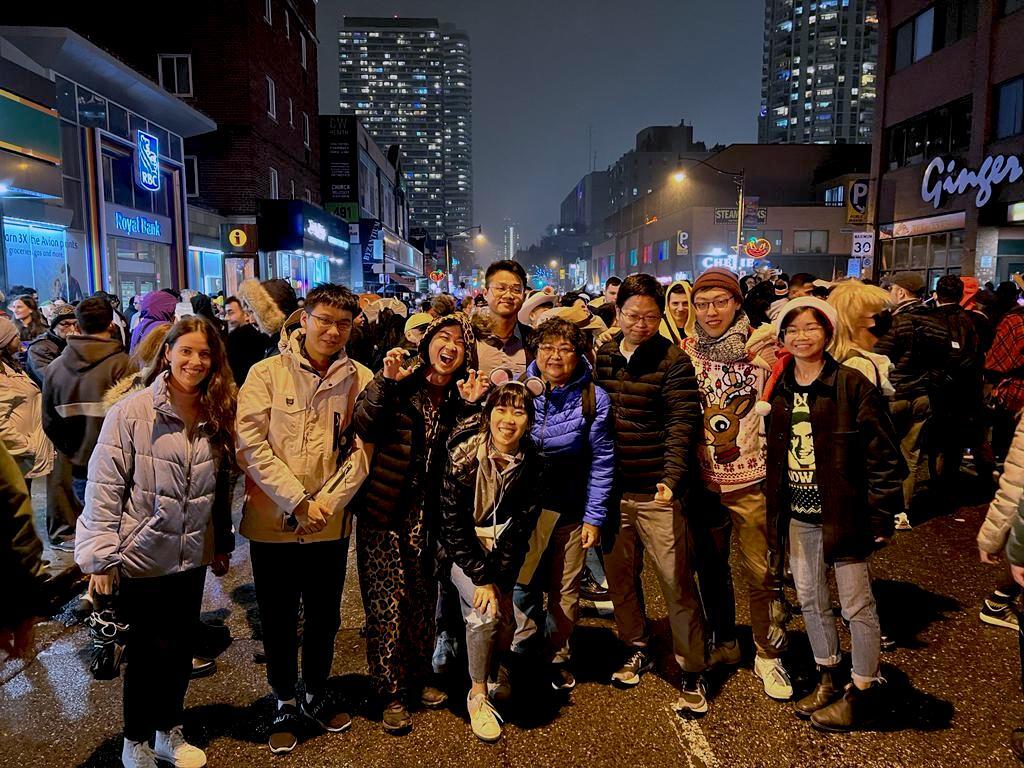
Then 2020 happened and everything was shut down. Overnight, things switched to being online and the social aspect of working in the lab was lost. Looking back at the last two years, it sometimes feels like we all just took a really long nap. Trying to produce new data, especially during the first couple of months, was hard. We mostly worked in shifts and it was hard to squeeze in any long experiments. Over time, these shifts became longer, things started opening up again, and we slowly returned to a more normal way of work. This fortunately also meant the return of lab socials and outings.
“I joined my current lab not only because of its science, but also because of its great atmosphere.”
What kind of social activities have you organised within the lab?
We often go out and watch movies together. Also, we’ve gone on several camping trips. There are a lot of beautiful provincial and national parks close to Toronto and so it’s perfect for a quick getaway. It’s usually just the PhD students and postdocs who join and every time we go, something fun happens. Or rather, something that is unfortunate at the time but ends up being really funny later. I can still picture all of us huddling in one large tent when it’s been raining like crazy for three days. There was so much rain that the water started to pool on the roof of the tent and one of us had to keep standing up and poke it to get rid of the water – it was a real bonding experience.
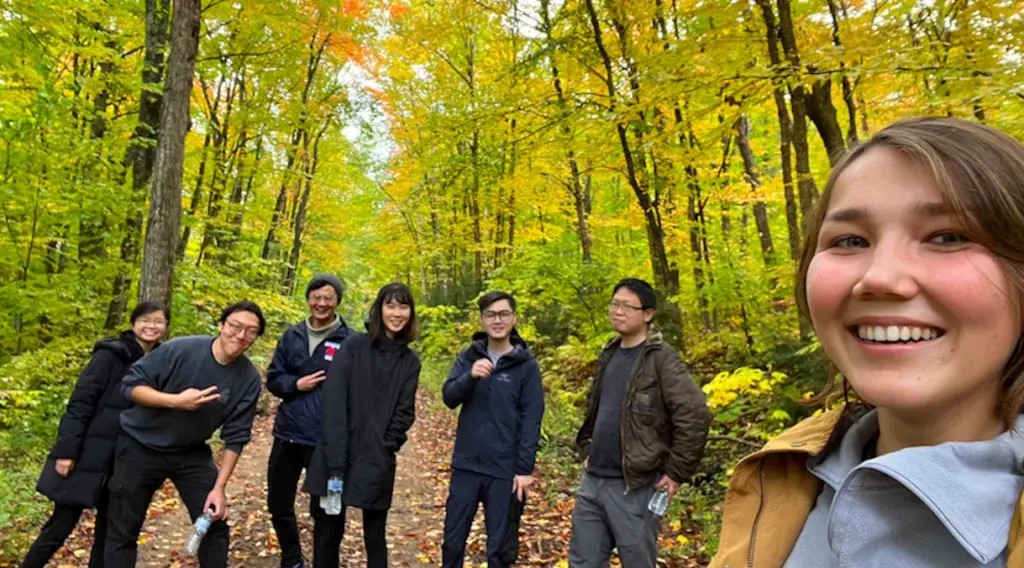
So last year, you joined us here at preLights – what motivated you?
During the pandemic, I fully realised the importance and value of science communication. It illustrated the difficulty of getting people to trust in science when it is often not presented in a way that is understandable or accessible. I felt the need to act and to actively work on my science communication skills.
When I learned about preLights through my lab mate Nicolaes Hyun-Kee Min, I decided to join straight away. From the very start, I’ve enjoyed the experience and the opportunity it has provided me to interact with biologists working across the world.
How would you like your career to progress from the PhD onward?
Partly due to my experience as a preLighter, I now feel that – once I’ve finished the PhD – I’d like to pursue a career in medical writing or perhaps in science policy. My current PhD program is pretty good at connecting students to relevant mentors. Also, different career seminars are organised – sometimes these include roundtable discussions with alumni who have taken different career paths. At these seminars, I’ve talked to several people involved in either science policy or medical writing which has given me a pretty good sense of what to expect when taking my next career steps.
“Partly due to my experience as a preLighter, I now feel that…I’d like to pursue a career in medical writing or perhaps in science policy.”
Could you tell us about something you like to do in your spare time – perhaps something that may surprise people?
I love some real grandma activities, including knitting. I started doing this during high school and it just sort of stuck with me. I find that I’m often hesitant to tell people that I like to knit, because I never really learned how to do any fancy patterns. Still, I’ve taught myself enough to knit scarves and sweaters for my dog, Pip.
